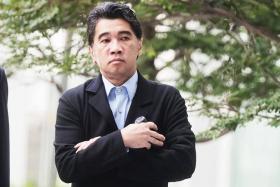Tougher measures planned to strengthen copyright
Proposed changes to Copyright Act announced
Creators will see their rights protected more robustly while others will enjoy greater access to copyrighted material if it is in the public interest as the Law Ministry (MinLaw) pushes for changes to the Copyright Act .
Meanwhile, there will be new enforcement measures to prevent the import and sale of set-top boxes used to access content from unauthorised sources. (See report, right.)
The ministry, together with the Intellectual Property Office of Singapore (Ipos), yesterday released details of these proposed changes in the 70-page Singapore Copyright Review Report.
The report makes 15 proposals, including a key one that creators will own the copyright to all commissioned works by default, unless they agree otherwise in writing.
Now, the party that commissions a work owns its copyright.
Changing the law "protects unknowing creators, who may not understand the law, in less than ideal scenarios where there are no contracts dealing with copyright ownership", said MinLaw in a statement yesterday.
Another proposal is for creators to be given a new right to be attributed as the creator of their work, even if they have sold the copyright to it.
This means that anyone using a work publicly - such as posting it on the Internet - will have to acknowledge its creator. There is currently no requirement that they do so.
"Proper attribution helps creators and performers build their reputation and incentivises creation of new works," the report said. "This is especially important in the digital era, where works are easily misattributed or not attributed at all."
The report also proposes two exceptions designed to improve access to copyrighted materials for purposes of public interest, with appropriate safeguards.
The first is to allow non-profit schools and their students to use free online resources for teaching purposes. Their existing exceptions generally cover only copying a portion of a work.
The report also suggested that a new exception be made for those who use automated techniques to analyse text, data and other content to generate insights.
At present, those who do so risk infringing copyright as this typically requires large-scale copying of works without permission.
Allowing them to do so legally will "promote applications of data analytics and big data across a gamut of industries, unlocking new business opportunities, speeding up processes, and reducing costs for all", MinLaw said.
The report was put together after a three-year review and two rounds of public consultations in 2016 and 2017.
The draft legislative bill will be made available for the public to comment on when it is ready.
Get The New Paper on your phone with the free TNP app. Download from the Apple App Store or Google Play Store now


